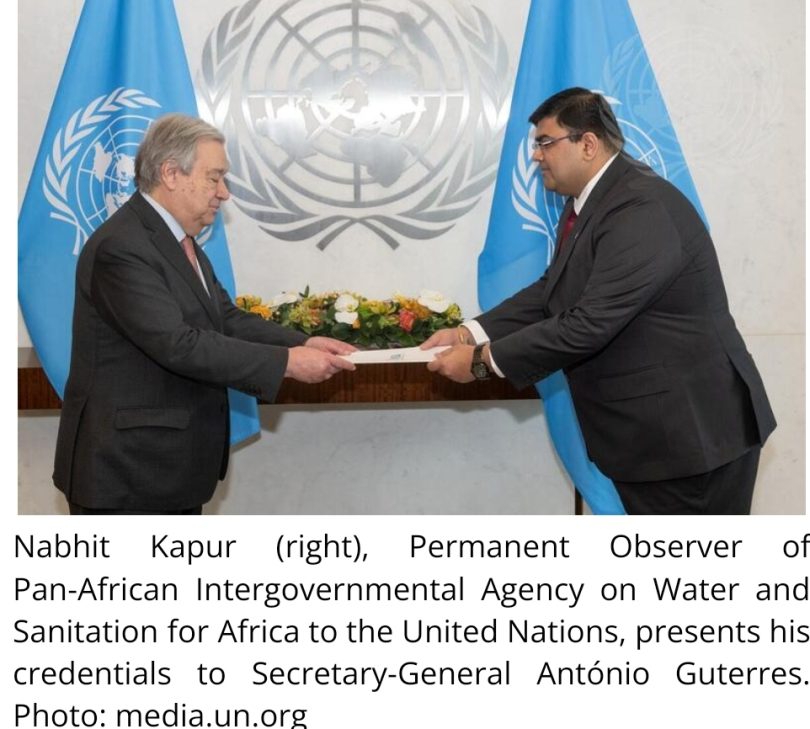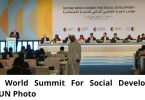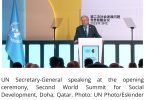In a quiet but significant moment at the United Nations headquarters earlier this year, H.E. Dr. Nabhit Kapur, an Indian national and seasoned development advocate, presented his letter of appointment as the Permanent Observer of the Pan-African Intergovernmental Agency on Water and Sanitation for Africa (WSA) to the United Nations Secretary-General H.E. António Guterres.
Held in March at the UN Headquarter in New York, the ceremony was more than a formal protocol. It signaled the beginning of a bold and unconventional chapter in global water diplomacy.
A psychologist by training, a strategist by instinct, and a development diplomat by practice, Dr. Kapur’s appointment is stirring both curiosity and cautious optimism across diplomatic and development circles. The African continent, long plagued by water insecurity and sanitation deficits, now has a new voice at the world’s most powerful multilateral table. This move is not driven by geography, but by a shared purpose.
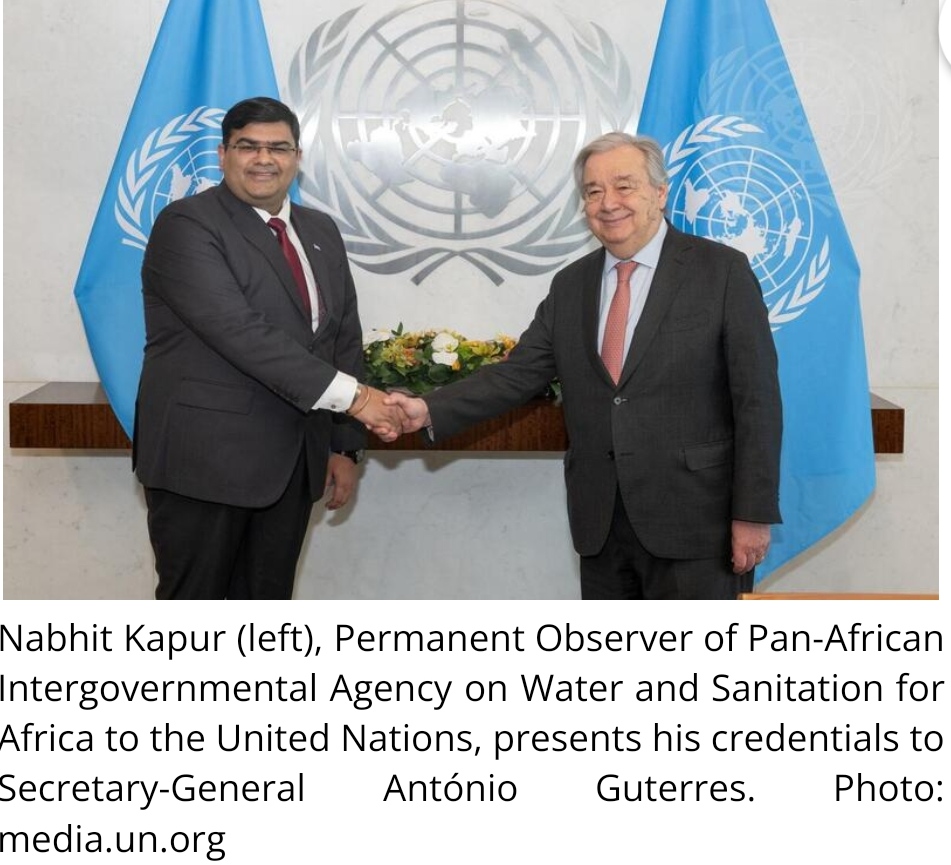
A Mandate as Critical as It Is Continental
The Pan-African Intergovernmental Agency for Water and Sanitation for Africa (WSA) was established to serve as Africa’s leading technical and policy agency on issues of water security, sanitation systems, and hygiene infrastructure. Headquartered in Ouagadougou, Burkina Faso, and backed by African Union institutions and member states, the WSA’s continental mandate is anchored in three unyielding ambitions:
- Universal access to clean, safe, and affordable water.
- Eradication of open defecation and improvement of sanitation facilities.
- Climate-resilient water management integrated into national development plans.
With Africa projected to house over 2.5 billion people by 2050, the stakes couldn’t be higher. Water is not just a utility or a nice-to-have. Water is a foundation for life, health, productivity, and peace. Yet over 400 million Africans still lack access to basic drinking water, and nearly 700 million are without safe sanitation.
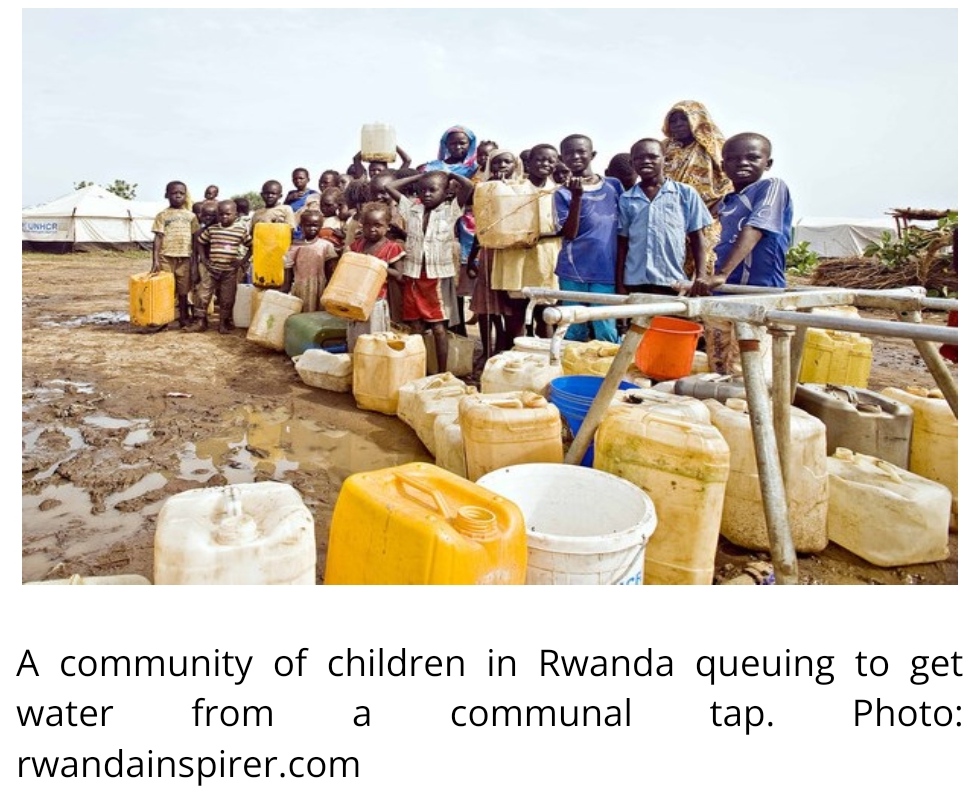
WSA exists to address this crisis technically, institutionally, and politically. The new presence at the UN under Dr. Kapur’s stewardship is meant to globalize the urgency.
The Outsider on the Inside: Who Is Dr. Nabhit Kapur?
Dr. Nabhit Kapur is not your typical diplomat. Born in India, educated in psychology and counselling, and seasoned across fragile African states, he has built a reputation as an empathetic disruptor. He is someone who bridges the gap between mental health, human development, and international policy.
He is the founder of the Peacefulmind Foundation, a global NGO advocating mental wellness, leadership training, and SDG education. But Kapur’s reach has extended well beyond social enterprise. He has served as:
- Founder and Chairman of the Peacefulmind Foundation (since 2016), which promotes mental health awareness and youth-led SDG leadership across the Global South;
- Served as Advisor to the Vice-President of Liberia (2021–2023) on youth development, and as Director of the SDG Program, National Association of Somalia (2023–2024);
- Earned advanced degrees: MA in Psychology (Kalinga University), MSc in Counselling & Psychotherapy (IBMS Chittoor), and a BA in Applied Psychology (Amity University).
While some may raise eyebrows at his non-African origin, Kapur brings years of lived, field-level experience across African contexts, and has received endorsements from government leaders and civil society in over a dozen countries.
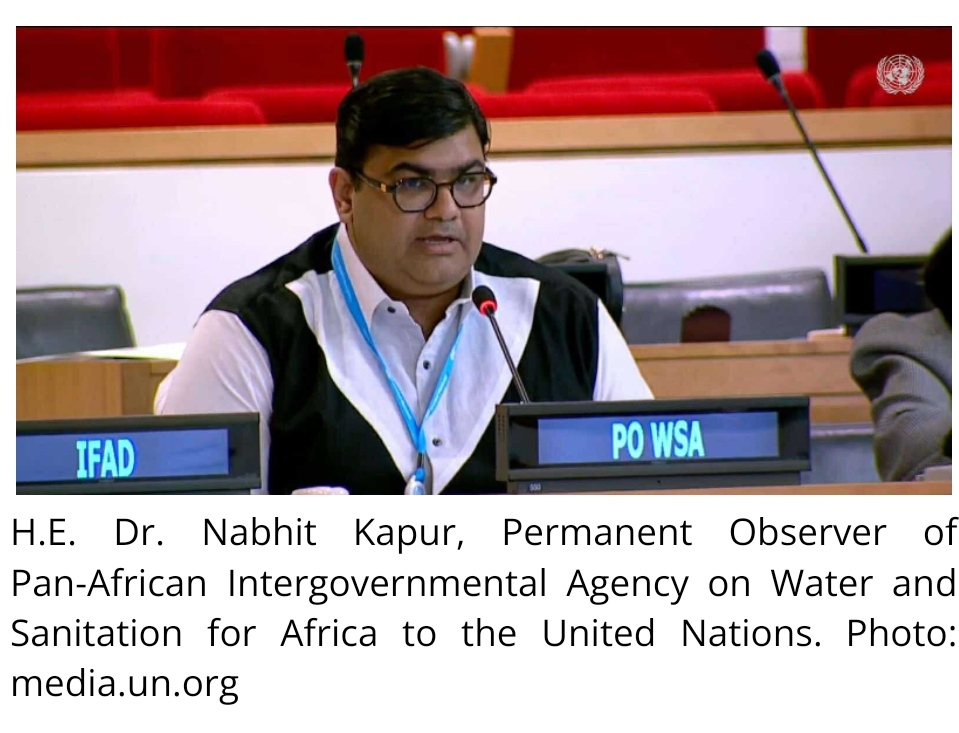
More importantly, he brings a perspective many seasoned bureaucrats lack: development as dignity, not just data.
For Dr. Kapur the WSA’s presence at the United Nations is not about institutional optics but also about continental leverage.
“Access to water and sanitation is not a privilege; it is a right. Our mission at the UN is to ensure Africa is not just heard, but that its challenges are matched with global action,” he said in a statement following his appointment.
In his vision, WSA will not operate like a passive observer. It will serve as:
- A technical convener across UN bodies like UN-Water, WHO, and UNDP.
- A diplomatic advocate for African countries pushing for water security funding.
- A research accelerator, tapping into Africa’s universities and think tanks to generate homegrown solutions to sanitation and hydrological challenges.
But above all, Kapur sees water through a human lens.
Activities Already Underway
Since his March appointment, H.E. Dr. Kapur has begun laying the groundwork for WSA’s strategic realignment within the global development architecture.
While his ambitions are high, Dr. Kapur faces challenges both structural and perceptual.
Internally, the WSA must manage coordination with dozens of national governments, each with its own policies and priorities. Externally, questions remain around how much influence a Permanent Observer without voting rights can realistically exert in a system governed by sovereign states.
And then there’s the perception problem. In a world where diplomatic roles are closely tied to national affiliations, an Indian leading a Pan-African water agency at the UN is unusual.
With so many development positions filled by the familiar faces of retired ambassadors, economists, or bureaucrats, Dr. Nabhit Kapur’s emergence marks a refreshing anomaly. He is part fieldworker, part strategist, and entirely unapologetic about the urgency of his cause.
In taking on this role, he is not just representing WSA but also a continent’s untold stories about water, and the people who bear its burden every day.
Africa’s water crisis has long been underreported, underfunded, and underestimated. Perhaps it takes an outsider-turned-insider to finally help the world pay attention.
Written by Olivier Noudjalbaye Dedingar, USA/UN Correspondent.


